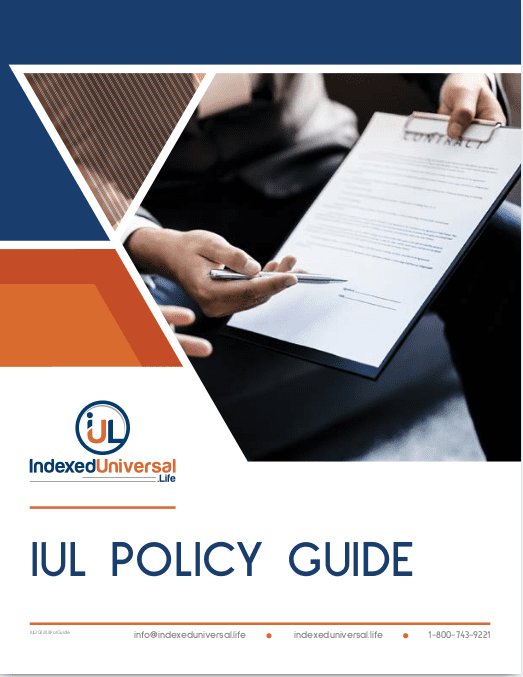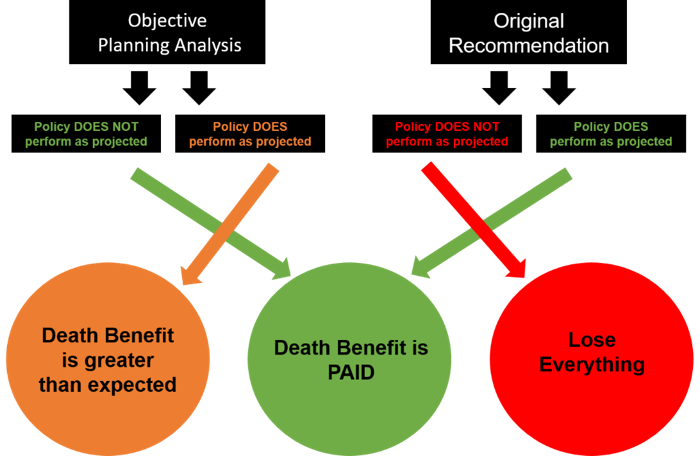All Categories
Featured
Table of Contents
Do they compare the IUL to something like the Vanguard Overall Supply Market Fund Admiral Shares with no lots, an expense ratio (ER) of 5 basis points, a turnover ratio of 4.3%, and an exceptional tax-efficient record of distributions? No, they contrast it to some terrible actively taken care of fund with an 8% tons, a 2% EMERGENCY ROOM, an 80% turn over proportion, and an awful document of short-term resources gain distributions.
Shared funds usually make yearly taxed distributions to fund proprietors, even when the value of their fund has actually decreased in worth. Shared funds not only call for income reporting (and the resulting yearly tax) when the mutual fund is going up in value, but can likewise enforce income taxes in a year when the fund has decreased in worth.
You can tax-manage the fund, gathering losses and gains in order to reduce taxable distributions to the investors, but that isn't somehow going to alter the reported return of the fund. The possession of mutual funds may call for the shared fund proprietor to pay projected taxes (universal life insurance cash value calculator).
:max_bytes(150000):strip_icc()/dotdash-comparing-iul-insurance-iras-and-401ks-Final-71f14693e37d4fb1b0736112179802b5.jpg)
IULs are very easy to place to make sure that, at the owner's death, the beneficiary is exempt to either income or estate tax obligations. The exact same tax obligation reduction methods do not work virtually as well with common funds. There are many, usually expensive, tax obligation traps related to the timed trading of common fund shares, catches that do not relate to indexed life insurance policy.
Possibilities aren't really high that you're going to undergo the AMT because of your mutual fund distributions if you aren't without them. The remainder of this one is half-truths at best. For example, while it is true that there is no income tax obligation as a result of your successors when they inherit the earnings of your IUL policy, it is also real that there is no earnings tax due to your heirs when they inherit a common fund in a taxed account from you.
Universal Life Insurance Loans
The federal inheritance tax exemption restriction is over $10 Million for a couple, and growing each year with rising cost of living. It's a non-issue for the large majority of physicians, a lot less the rest of America. There are much better means to stay clear of inheritance tax concerns than acquiring investments with reduced returns. Shared funds might cause earnings tax of Social Safety and security benefits.

The development within the IUL is tax-deferred and may be taken as tax obligation complimentary earnings using financings. The plan proprietor (vs. the shared fund supervisor) is in control of his or her reportable income, thus allowing them to decrease and even get rid of the taxes of their Social Protection benefits. This is wonderful.
Right here's one more very little issue. It's true if you buy a common fund for say $10 per share right before the distribution day, and it distributes a $0.50 circulation, you are then going to owe tax obligations (most likely 7-10 cents per share) although that you haven't yet had any gains.
In the end, it's truly concerning the after-tax return, not just how much you pay in tax obligations. You're also possibly going to have more cash after paying those tax obligations. The record-keeping demands for possessing shared funds are substantially extra intricate.
With an IUL, one's records are maintained by the insurance coverage business, copies of annual statements are sent by mail to the proprietor, and circulations (if any kind of) are completed and reported at year end. This set is likewise sort of silly. Certainly you ought to keep your tax obligation documents in situation of an audit.
Universal Life Insurance Premium Calculator
All you need to do is push the paper right into your tax obligation folder when it turns up in the mail. Hardly a factor to acquire life insurance. It's like this guy has never ever invested in a taxed account or something. Common funds are typically component of a decedent's probated estate.
In addition, they undergo the delays and costs of probate. The profits of the IUL policy, on the other hand, is always a non-probate distribution that passes outside of probate directly to one's named recipients, and is as a result not subject to one's posthumous creditors, undesirable public disclosure, or comparable hold-ups and costs.
We covered this one under # 7, yet just to evaluate, if you have a taxable mutual fund account, you need to put it in a revocable count on (or even easier, make use of the Transfer on Death designation) in order to prevent probate. Medicaid disqualification and lifetime income. An IUL can provide their owners with a stream of revenue for their entire life time, despite just how long they live.

This is helpful when organizing one's affairs, and transforming assets to revenue before a retirement home arrest. Mutual funds can not be transformed in a similar manner, and are usually taken into consideration countable Medicaid assets. This is an additional silly one advocating that inadequate individuals (you recognize, the ones that require Medicaid, a federal government program for the inadequate, to spend for their assisted living facility) need to make use of IUL rather than shared funds.
What Is The Difference Between Universal And Term Life Insurance
And life insurance coverage looks dreadful when compared relatively versus a retired life account. Second, individuals that have money to buy IUL over and past their pension are mosting likely to have to be terrible at handling cash in order to ever before receive Medicaid to pay for their retirement home costs.
Persistent and incurable health problem biker. All policies will certainly permit a proprietor's simple access to cash from their plan, typically forgoing any surrender charges when such people suffer a severe ailment, require at-home care, or come to be constrained to a nursing home. Shared funds do not give a similar waiver when contingent deferred sales fees still put on a mutual fund account whose owner requires to market some shares to money the prices of such a keep.
Universal Life Insurance Costs
You obtain to pay even more for that benefit (biker) with an insurance coverage policy. Indexed global life insurance coverage supplies fatality benefits to the recipients of the IUL owners, and neither the owner neither the beneficiary can ever lose cash due to a down market.
I definitely do not require one after I reach economic independence. Do I want one? On average, a buyer of life insurance policy pays for the true price of the life insurance benefit, plus the costs of the policy, plus the revenues of the insurance policy firm.
Ul Mutual Life Insurance
I'm not completely certain why Mr. Morais threw in the entire "you can't lose cash" again below as it was covered rather well in # 1. He simply desired to repeat the finest marketing point for these points I mean. Once again, you do not lose nominal bucks, however you can shed genuine bucks, as well as face serious opportunity price because of low returns.

An indexed universal life insurance policy policy proprietor might trade their plan for an entirely various policy without causing income taxes. A mutual fund owner can stagnate funds from one common fund firm to one more without marketing his shares at the previous (hence causing a taxed occasion), and buying new shares at the latter, often subject to sales charges at both.
While it is real that you can trade one insurance coverage for one more, the factor that people do this is that the initial one is such a horrible plan that also after getting a new one and experiencing the very early, adverse return years, you'll still come out ahead. If they were sold the ideal policy the first time, they should not have any desire to ever before trade it and experience the early, negative return years once more.
Latest Posts
Universal Life Premium Financing
Universal Life Insurance Death Benefit Options
Indexed Whole Life Insurance Policy